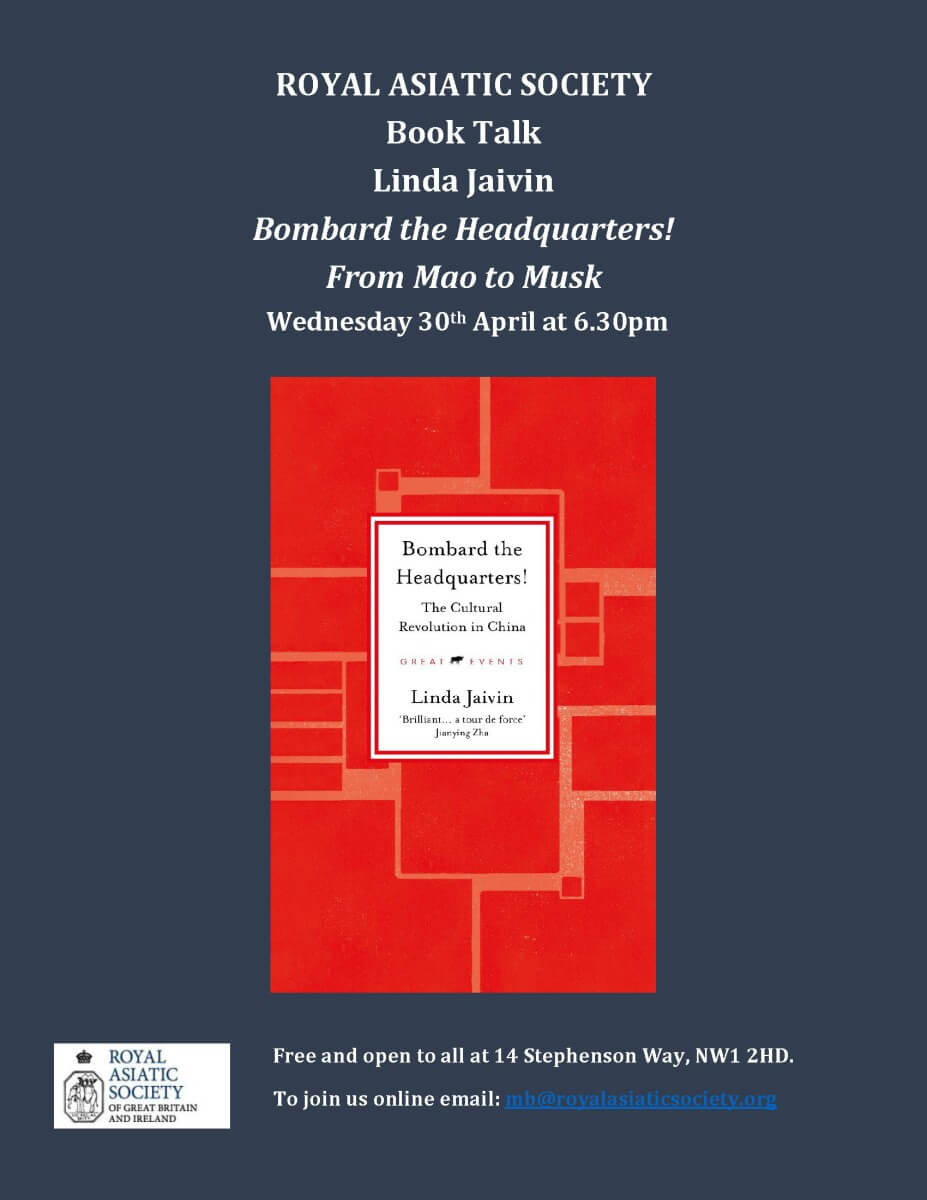
- This event has passed.
Linda Jaivin: Bombard the Headquarters! From Mao to Musk

This event is free and open to all and no registration is required.
To watch online over zoom email Matty (mb@royalasiaticsociety.org)
About the book:
In 1966, with the words ‘Bombard the Headquarters!’ Mao Zedong unleashed the full, violent force of a movement that he called the Great Proletarian Cultural Revolution. By the time he died ten years later, millions had perished, China’s cultural heritage was in ruins, its economic state was perilous, its institutions of government were damaged and its society was bitterly divided.
Linda Jaivin’s previous (and twelfth) book, The Shortest History of China, was named the No. 1 book on China for 2021 by fivebooks.com and has been published in about twenty-four editions worldwide. In this fascinating account, Linda Jaivin focuses on the eventful start of the Cultural Revolution. She sheds light on the ideological quarrels that underpinned it and profiles the personalities involved.
Discussion of the Cultural Revolution is heavily censored in the People’s Republic, and many young Chinese people know almost nothing about it. Even so, it continues to cast a shadow over life in China. Current president Xi Jinping’s assumption of a third term in 2022, his elimination of rival factions from the leadership and attempts to build a personality cult around himself discomfit many within and outside of the Chinese Communist Party. Bombard the Headquarters! helps us to understand why.
‘A beautifully concise account that makes sense of a hugely complex event in modern Chinese history. Linda Jaivin puts her formidable, deep experience both of Chinese history and language to excellent use, conveying in 100 pages what most would struggle to achieve in a thousand.’
—Kerry Brown, Professor of Chinese Studies and Director of the Lau China Institute at King’s College, London
‘Excellent . . . a powerful account of a truly extraordinary period in recent Chinese history, surefooted and perceptive, enlivened by a wealth of vignettes and anecdotes which bring to life the dramatic and frequently horrific events that have played a seminal role in forming Chinese society as it exists today.’
—Philip Short, author of Mao: A Life
